Speakers and Chairs

The Role of Senescent Cells in Alzheimer's Disease and Dementia
Presenter
Darren Baker, PhD, MS
Mayo Clinic
Darren Baker, PhD received his B.S. from the University of Minnesota – Twin Cities with a major in Biology and minor in Chemistry in 2001, graduating summa cum laude from the College of Biological Sciences Honors program. He completed his master’s degree from Mayo Clinic Graduate School of Biomedical Sciences in 2005 with a focus on Tumor Biology. He received his Ph.D. from Radboud University, Nijmegen, Netherlands in Biomedical Sciences in 2008. After graduating, he was recruited to be a post-doctoral fellow in the Robert and Arlene Kogod Center on Aging from 2008-2011. In 2010, he became an Assistant Professor in the Department of Biochemistry and Molecular Biology at Mayo Clinic. In 2016, he became an Assistant Professor in Pediatrics at Mayo Clinic. Additionally, he has functioned as the Associate Director of the Paul F. Glenn Laboratories for Senescence Research at Mayo Clinic since 2013.
Science Magazine has selected works from Darren’s research as one of the top 10 breakthroughs in science in both 2011 and 2016. His research has contributed to 52 patents which have been licensed to Unity Biotechnology, a publicly traded company developing senolytic medicines that Mayo co-founded based on Darren’s 2011 Nature paper.
His laboratory is currently funded by the NIH, the Paul F. Glenn Foundation for Medical Research, and the Keck Foundation. He has been funded previously by the Ellison Medical Foundation, the Alzheimer’s Disease research center, the Mayo Clinic Children’s Research Center, and the Mayo Clinic benefactor funded career development award.

Phase 1b Study in AD Patients with Neuroinflammation
Presenter
CJ Barnum, PhD
INmune Bio
Dr. CJ Barnum is the Director of Neuroscience at INmune Bio, Inc. Dr. Barnum is a neuroimmunologist with basic science and clinical development expertise in neurodegenerative and psychiatric diseases. His work has focused on identifying biomarkers that can be used to translate inflammatory therapies into clinical treatments for neurologic diseases such as Alzheimer’s, Parkinson’s, Multiple Sclerosis, and Major Depression.
Dr. Barnum has led INmune Bio’s Neuroimmune programs since 2018.

Mitochondrial Epigenetics, a Tool for Alzheimer’s Disease
Presenter
Marta Barrachina, PhD
ADmit Therapeutics
Dr. Marta Barrachina is the founder and CEO of ADmit Therapeutics S.L., a spin off from the Bellvitge Biomedical Research Institute (IDIBELL, Barcelona, Spain). A principal investigator for fifteen years, she has built a solid scientific background in epigenetics of neurodegenerative diseases like Alzheimer’s disease and other dementias.
Dr. Barrachina holds six patents and had authored more than 35 scientific articles in the neuroscience field. She holds a PhD in Biochemistry from the University of Barcelona and an Executive MBA from the Ramon Llull University.

Session V: NOVEL BIOMARKERS IN ALZHEIMER’S DISEASE
CHAIR
Nicole Bjorklund, PhD
Alzheimer’s Drug Discovery Foundation
Nicole Bjorklund, PhD, manages the Diagnostics Accelerator Initiative working closely with our partners at Gates Ventures. In this capacity, she proactively engages promising biomarker programs and supports the development of these biomarkers for use in clinical practice for Alzheimer’s disease and related dementias. She also supports the management of our core Request for Proposals by providing scientific review of biomarker proposals and tracking program progress.
Dr. Bjorklund came to the ADDF from Albert Einstein College of Medicine where she was an Assistant Research Professor and Operations Director of the Biomarker and Biorepository core facilities. Her laboratories, as part of the CTSA-supported Institute of Clinical and Translational Research, supported clinical research studies at Einstein and Montefiore Medical Center. She remains an adjunct faculty member at Einstein. Dr. Bjorklund completed postdoctoral training at University of Texas Medical Branch, where she investigated molecular resistance mechanisms to Alzheimer’s disease. She earned a doctorate in biochemistry at Washington State University and a bachelor’s degree in chemistry from Boise State University. Dr. Bjorklund has authored numerous peer-reviewed publications and is a member of the Society for Neuroscience and New York Academy of Sciences.

Gene Therapy for Neurodegeneration
KEYNOTE PRESENTER
Ronald Crystal, MD
Weill Cornell Medical College
Dr. Ronald Crystal is Professor and Chairman of the Department of Genetic Medicine at the Weill Medical College of Cornell University, where he is also the Bruce Webster Professor of Internal Medicine, Director of the Belfer Gene Therapy Core Facility and Attending Physician at the NewYork-Presbyterian Hospital/Weill Cornell Medical Center.
After earning degrees in physics from Tufts University and the University of Pennsylvania and an MD degree from the University of Pennsylvania, Dr. Crystal completed his post-graduate training in internal medicine at Massachusetts General Hospital and in Pulmonary Medicine at the University of California, San Francisco. In 1970, Dr. Crystal joined the NIH, where he served as Chief of the Pulmonary Branch of the National Heart, Lung and Blood Institute until moving to Weill-Cornell in 1993.
In the 1970s and ’80s, Dr. Crystal’s research focused on the pathogenesis and therapy of lung disorders. The work of his laboratory formed the basis of the current understanding of the pathogenesis of lung fibrosis and the hereditary form of emphysema associated with alpha 1-antitrypsin deficiency, a disease for which he developed the FDA-approved therapy now used to treat thousands of patients worldwide. In the late 1980s, Dr. Crystal shifted his focus to gene therapy, a field in which he is a pioneer. He was the first to use a recombinant virus as a vehicle for in vivo gene therapy, and has carried out human trials of gene therapy for cystic fibrosis, cardiac ischemia, cancer and central nervous system disorders. In addition to gene therapy, his laboratory has programs in deciphering how human genetic variation modulates gene expression in the context of environmental exposure and exploiting these relationships to recategorize human disease at the biologic level.
Dr. Crystal has received numerous professional honors and serves on a number of advisory boards to government and industry. He has published over 900 scientific articles, and his work has been cited over 50,000 times in the scientific literature. He has edited several textbooks, is responsible for numerous biomedical patents, and is a founder of several biotechnology companies focused on developing gene therapy therapeutics.

Effect of Novel GLP1 Analogue, Liraglutide on Microglial Activation and Cerebral Glucose Metabolism in Mild Alzheimer's Disease
Presenter
Paul Edison, MD, PhD, MPhil, FRCP, FRCPI
Imperial College London
Dr. Paul Edison is a Clinical Senior Lecturer in Neuroscience in the Department of Brain Sciences at Imperial College London and an honorary Professor at Cardiff University, Wales. He is also a Consultant Physician at Hammersmith Hospital, London.
After his clinical training (MD), Dr. Edison completed his MPhil and PhD at Imperial College London, and then his higher training in London Deanery and obtained his CCT from the Postgraduate Medical Education and Training Board. He then became a Fellow of Royal College of Physicians, Ireland and Fellow of Royal College of Physicians, UK.
He has received prestigious MRC clinical research fellowship award, HEFCE Clinical Senior Lectureship Award, and research scholarships. He is currently Clinical Senior Lecturer in the Department of Brain Sciences, Faculty of Medicine at Imperial College London and an Honorary Professor at Cardiff University, Wales. He is also a Consultant at Hammersmith Hospital, London.
His research is focused on neuroimaging with novel molecular probes using PET and magnetic resonance techniques for imaging pathophysiological changes associated with Alzheimer’s disease, Parkinson’s disease, and other neurodegenerative diseases. He has extensive experience in PET and MR imaging in different neurodegenerative and neuroinflammatory conditions. His initial work evaluated one of the first amyloid imaging agent in Alzheimer’s disease at the MRC Cyclotron Unit, Imperial College London, Hammersmith Hospital, and has published seminal papers in the field. Since then, combined with his clinical expertise in different types of degenerative diseases and dementia, he has investigated the relationship between amyloid deposition, microglial activation, glucose metabolism, and MRI changes in different disorders, along with evaluating different transporters in the brain.
He has published in high impact journals such as Brain, Annals of Neurology, and Neurology, and has received grants from the Medical Research Council, NIHR/HEFCE, Alzheimer’s Society, Alzheimer’s Research UK, Alzheimer’s Drug Discovery Foundation US, and other funders. He collaborates closely with Novo Nordisk, GE Healthcare, Novartis, Piramal Life Sciences, and Astra Zeneca. He has also received several best paper awards internationally and published in leading scientific journals.
He is the editor-in-chief of Brain Connectivity, an associate editor for Journal of Alzheimer’s Disease, and serves in the editorial boards of Journal of Neuroimaging and Contrast Media & Molecular Imaging. He is the chief investigator for several multicentre studies, one of which is evaluating Liraglutide in treatment of Alzheimer’s disease, which is conducted in 24 sites. He leads the Imperial College Memory Research center, and is the Chief Investigator of several other imaging studies using PET and MRI, and heads multicentre studies evaluating novel treatment of Alzheimer’s and other neurodegenerative diseases. He also runs a memory clinic at Imperial College Healthcare NHS Trust.
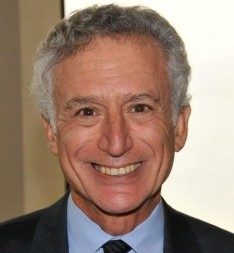
Welcome and Introductory Notes
CHAIR
Howard Fillit, MD
Alzheimer’s Drug Discovery Foundation
Dr. Howard Fillit is ADDF’s Founding Executive Director and Chief Science Officer. He is a geriatrician, neuroscientist, and innovative philanthropy executive, who has led the ADDF since its founding. Dr. Fillit has held faculty positions at The Rockefeller University, the SUNY-Stony Brook School of Medicine and the Cornell University School of Medicine. In 1987, he joined the Mount Sinai School of Medicine, where he is a clinical professor of geriatric medicine and palliative care, medicine and neuroscience. Dr. Fillit also maintains a limited private practice in consultative geriatric medicine with a focus on Alzheimer’s disease and related dementias.
He has authored or co-authored more than 300 publications and is the senior editor of Brocklehurst’s Textbook of Geriatric Medicine and Gerontology. Dr. Fillit is the recipient of many awards and honors including the Rita Hayworth Award from the Alzheimer’s Association. He is a fellow of the American Geriatrics Society, the American College of Physicians, the Gerontological Society of America and the New York Academy of Medicine. Dr. Fillit earned his bachelor of arts in neurobiology cum laude from Cornell University and his medical degree from the SUNY-Upstate Medical University.
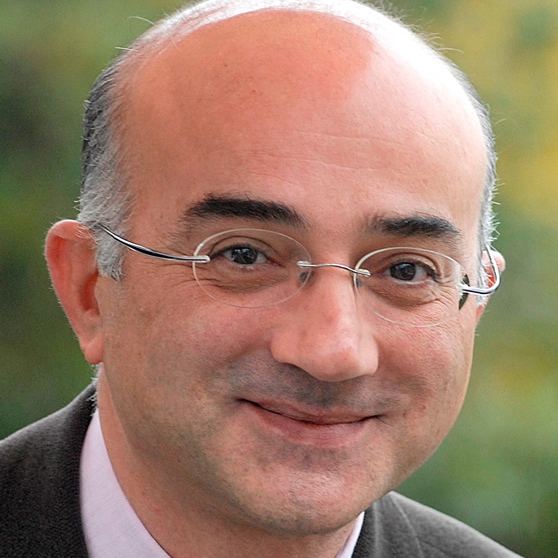
A Rapid Non-invasive Diagnostic Test to Predict Mild Cognitive Impairment and Early Alzheimer’s Disease
Presenter
Hüseyin Firat, MD, PhD
Amoneta
Dr. Hüseyin Firat is a pediatrician who practiced as Associate Professor in Paris University Hospitals. Following his PhD in Immunology at Pasteur Institute, he was accredited as research director, in charge of the Immunology of Gene Therapy Laboratory at Généthon (Paris). In 2002, he joined the Biomarker Department of Novartis Pharma, where he headed biomarker sections worldwide, and was a member of Novartis Pharma Innovation team in Basel, Switzerland.
His research activities generated several patented discoveries, based on which several biotech companies have been created. In 2007, he has been accredited as University Professor in France and founded Firalis S.A. in 2008, and Amoneta in 2014. As the founder of Firalis Group, he has been the laureate of the national award from French Ministry of Higher Education and Research and OSEO (2009). Since then, he has served as the CEO and CSO of Firalis. Under his leadership, the Firalis Group received numerous recognitions and prizes for its innovative R&D projects, among many others, including “The Enterprise of the Future” awarded by Ernst & Young and L’Express, in 2014.
Dr. Firat initiated and coordinated several European consortia on clinical biomarker qualification such as SAFE-T, CARDIO-SAVE, MIPROG, RABIOPRED, ADKIT, ADCHIP, ADDIA, and MEMORYLINC projects (the MemoryLinc Project received the official support and investment from the ADDF in 2019).
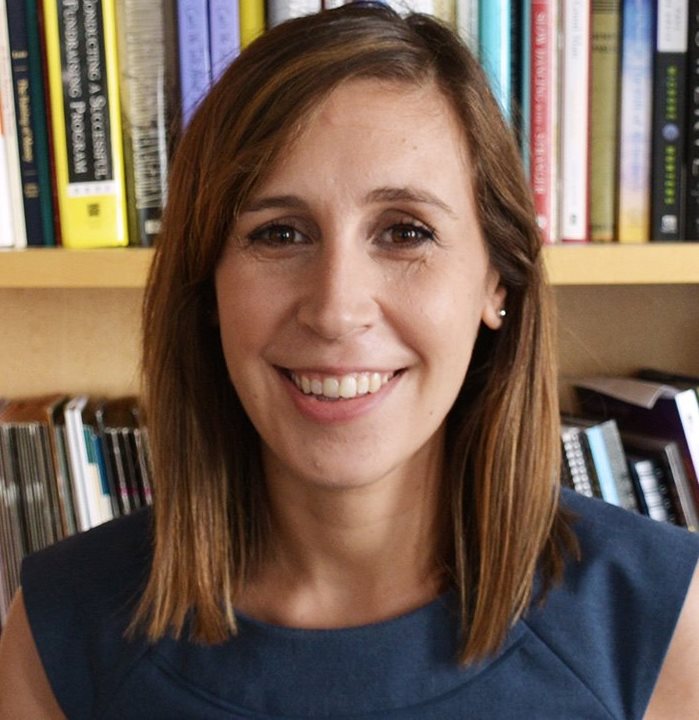
Session III: EMERGING AREAS IN DRUG DEVELOPMENT FOR NEURODEGENERATION
CHAIR
Lauren Friedman, PhD
Alzheimer’s Drug Discovery Foundation
Dr. Lauren Friedman is the Director of Scientific Affairs at ADDF. She supports the management of our drug discovery portfolio by providing scientific and strategic review of preclinical drug discovery proposals and tracking program progress.
Dr. Friedman completed her postdoctoral training at Columbia University, where she studied modulators of autophagy in Alzheimer’s disease. She earned a doctorate in neuroscience at the Icahn School of Medicine at Mount Sinai, where she focused on molecular mechanisms underlying the development and degeneration of brain circuits involved in autism and Parkinson’s disease. She received a bachelor’s degree in biopsychology from Tufts University. Dr. Friedman has authored numerous peer-reviewed publications and is a member of the Society for Neuroscience, New York Academy of Sciences and the Association for Women in Science.

TABLOOD: A Biomarker Panel for Direct Assessment in Blood of Alzheimer’s Disease Patho-physiological Hallmarks
Presenter
Douglas Galasko, MD
University of California, San Diego
Dr. Douglas Galasko is board-certified in neurology, with special expertise in memory disorders, Alzheimer’s diseases, and unusual neurological conditions such as dementia with Lewy bodies and frontotemporal dementia.
He is associate director of the UC San Diego Shiley-Marcos Alzheimer’s Disease Research Center, and has carried out research into Alzheimer’s and related disorders for over 25 years. He has published over 200 scientific articles on diagnosis, risk factors, biological markers, and treatment of Alzheimer’s disease.
He has been in clinical practice at UC San Diego Health since 1990. His clinic offers comprehensive diagnostic testing, with access to brain imaging and comprehensive laboratory testing as needed, medical management and knowledge of community resources. Patients are also offered access to research opportunities, including potential new treatments.

Benfotiamine in Alzheimer's Disease: A Pilot Study
Presenter
Gary Gibson, PhD
Burke Neurological Institute
Dr. Gary Gibson is Professor of Neuroscience, at Weill Cornell Medicine, the Brain and Mind Research Institute, the Burke Neurological Institute.
His peer-reviewed publications include 174 research papers, 83 chapters; he has edited three volumes on mitochondria and disease. His research has explored the role of mitochondria, metabolism and calcium in brain function and dysfunction. His studies have been directed toward better understanding of Alzheimer’s disease (AD) in order to develop new therapies. His research strategy is to use autopsy brains and living cells (fibroblasts and stem cells) from patients with AD to identify novel, clinically relevant abnormalities [e.g., abnormalities calcium, thiamine (vitamin B1) dependent enzymes and mitochondrial enzymes] that will provide a foundation to understand the mechanism of changes in neurons. He then models the abnormalities with proteins, cells and animals to understand the underlying mechanisms and to develop new therapeutic approaches. Thiamine dependent enzymes are diminished in tissues from AD patients, and interfering with thiamine dependent enzymes can exacerbate plaque formation, phosphorylation of tau and the calcium changes that occur in cells from AD patients or animal models of AD. Thus, reversing these changes is an attractive therapeutic target. The goal of his research is to understand what causes these changes, their implications for brain disease and to develop strategies to reverse them.

Digital Biomarkers in Alzheimer’s Disease
Presenter
Lampros Kourtis, PhD
Circadic.io

Magnetic Susceptibility as a Biomarker for Alzheimer’s Disease
Presenter
Chunlei Liu, PhD
University of California, Berkeley
Dr. Chunlei Liu is an Associate Professor at the University of California, Berkeley, with the Department of Electrical Engineering and Computer Sciences, and the Helen Wills Neuroscience Institute.
He received a B.S. in Physics from Peking University, an M.S. in Physics from the University of North Carolina, Chapel Hill, and a Ph.D. in Electrical Engineering from Stanford University. He was previously Associate Professor of Radiology and Biomedical Engineering at Duke University. Dr. Liu’s research is in the area of magnetic resonance imaging and remote cell modulation. Dr. Liu pioneered higher-order tensor diffusion MRI which utilizes higher-order tensor statistics (variance, sknewness, kurtosis etc.) to measure the diffusion processes in biological tissues.
Dr. Liu is also credited for developing susceptibility tensor imaging for mapping bio-magnetism. He received NIH Pathway to Independence Award (K99) in 2006, ISMRM Young Investigator Award finalist in 2007 and RSNA Margulis Award in 2015.

Session III: Emerging Areas in Drug Development for Neurodegeneration
CHAIR
Nick McKeehan
Alzheimer’s Drug Discovery Foundation
Nick McKeehan is a member of the ADDF’s Aging and Alzheimer’s Prevention program. He evaluates the scientific evidence for and against therapies to promote brain health and/or prevent Alzheimer’s disease at our website CognitiveVitality.org and contributes regularly to the site’s blog.
Mr. McKeehan previously served as Chief Intern at Mid Atlantic Bio Angels (MABA) and was a research technician at Albert Einstein College of Medicine investigating repair capabilities of the brain. Mr. McKeehan received a bachelor of science degree in biology from Purdue University, where he was awarded a Howard Hughes Scholarship. He also writes about the biotechnology industry for 1st Pitch Life Science.

Dysfunction of Autophagy and Endosomal-Lysosomal Pathways: Role in Pathogenesis of Alzheimer’s Disease
Presenter
Ralph Nixon, MD, PhD
NYU Langone Health
Dr. Ralph Nixon is Professor of Psychiatry and Cell Biology at New York University Langone Medical Center and the Director of the Center for Dementia Research at the Nathan S. Kline Institute. He received his PhD in Cell and Developmental Biology from Harvard, MD from University of Vermont, and internship/residency training in medicine and psychiatry at Massachusetts General Hospital.
Dr. Nixon’s research focuses on the biology of protein clearance by endosomal-lysosomal, autophagy, and calpain-calpastatin systems and addresses molecular defects in these clearance mechanisms driven by genetic and environmental factors as a basis for Alzheimer’s disease and related disorders and as promising therapeutic targets. A second major research effort focuses on the axonal transport, assembly, and turnover of cytoskeletal proteins and their dysregulation within synapses in relation to dementing diseases. Current multi-omic and functional analyses at the synaptic level are tracking neurofilament subunit interactions with proteins genetically linked to multiple neurocognitive disorders.
Dr. Nixon has >300 scientific publications (H-index, 104) and eight issued patents. He served as chair of the Neuroscience, Behavior and Sociology of Aging Review Committee at NIH, Chair of the Medical and Scientific Advisory Council of the Alzheimer’s Association and member of its Board of Directors, and currently serves on the Governor’s Commission on Alzheimer’s Disease for New York State. Dr. Nixon’s awards include the MERIT, Leadership and Excellence in Alzheimer Research, and Academic Career Leadership Awards from NIH and the Zenith, Temple Discovery, and Khachaturian Awards from the Alzheimer’s Association. He is past fellow of the A.P. Sloan Foundation and current fellow of the American College of Neuropsychopharmacology.
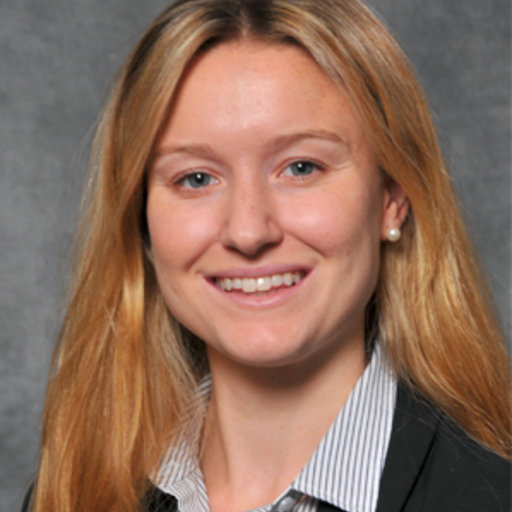
Session II: METABOLIC AND MITOCHONDRIAL APPROACHES FOR ALZHEIMER’S DISEASE
CHAIR
Meriel Owen, PhD
Alzheimer’s Drug Discovery Foundation
Dr. Meriel Owen is a Scientific Program Officer and a member of the ADDF’s Scientific Affairs team. She supports the scientific portfolio through strategic review and program management.
Dr. Owen earned her doctorate in neuroscience from Northwestern University, where she used neuroimaging and robotic techniques to better understand the neural mechanisms underlying motor impairment after stroke. She received a MSc from University College London in clinical neuroscience and a bachelor’s degree in cognitive science from the University of California, Berkeley. Dr. Owen is also interested in the intersection between neuroscience and entrepreneurship. During her graduate studies, she completed the Kellogg Management Program for scientists and engineers, was selected as a Northwestern Leadership Fellow, and co-founded a startup company that won the Neuro Startup Challenge.

Clinical Trial Results: Glutamate Modulator Riluzole in Patients with Mild Alzheimer’s Disease
Presenter
Ana Pereira, MD
Icahn School of Medicine at Mount Sinai
Dr. Ana Pereira completed her Neurology Residency at Harvard University, with sub-specialty training in Cognitive Neurology at Columbia University, Post-Doctoral Research Fellowship at Columbia University and Translational and Clinical Investigation at Rockefeller University in New York City where she was an Assistant Professor of Clinical Investigation before moving to Icahn School of Medicine at Mount Sinai (ISMMS).
Dr. Pereira’s laboratory at ISMMS focuses on furthering knowledge of the neurobiology of aging and Alzheimer’s disease, taking into account the selective vulnerability of glutamatergic neural circuits to synaptic changes in aging and neuronal loss in Alzheimer’s disease. She seeks to explore mechanisms underlying these susceptibilities along with effective therapeutic interventions.
Clinically, Dr. Pereira evaluates patients at the Center for Cognitive Health at ISMMS having expertise in diagnosing and treating neurodegenerative disorders and other cognitive syndromes.

Novel Positive Allosteric Modulators of the Alpha1A-Adrenergic Receptor to Treat Alzheimer’s Disease
Presenter
Dianne Perez, PhD
Cleveland Clinic Foundation
Dr. Dianne Perez received her B.A. in chemistry from The College of Wooster in Wooster Ohio. She received her Ph.D. in chemistry from The California Institute of Technology. She has been at The Cleveland Clinic Foundation for 30 years, staring as a postdoctoral fellow and currently at Full Staff (Full Professor equivalent). Her research is seminal in the α1-AR field, starting with the cloning of the receptors, their pharmacological characterization, structure-function analysis of the binding pocket, creation of novel transgenic mouse models, their roles in cardiovascular and neurological physiology and pathophysiology, to current drug design.

Accelerating Therapy Development for Alzheimer’s: from Open Science to Open Drug Discovery
Presenter
Suzana Petanceska, PhD
National Institutes of Health/National Institute on Aging
Dr. Suzana Petanceska is a Director for Strategic Development and Partnerships in the Division of Neuroscience at the National Institute on Aging (NIA). During her tenure at the NIA, she developed a number of research portfolios and innovative programs in basic and translational research for Alzheimer’s disease. Since 2012, her program development efforts have focused on developing systems biology and systems pharmacology capabilities for AD research and drug development within an open-science research framework. She is the program director for the Accelerating Medicines Partnership for Alzheimer’s Disease (AMP-AD) Target Discovery Program and several AMP-AD affiliated, open-science consortia.
Dr. Petanceska has a bachelor’s degree in molecular biology and physiology from the University of Belgrade, and a PhD in Pharmacology from New York University. Following her postdoctoral training at Rockefeller University and Cornell University in New York, she established her independent research career at the Nathan Kline Institute and joined the faculty of New York University Medical Center. Her research focused on the role of disrupted sterol metabolism in Alzheimer’s disease pathogenesis and on the mechanisms by which estrogens and cholesterol-lowering drugs might exert neuroprotection.

Imaging Brain Inflammatory States: Focus on CSF1R
Presenter
Martin Pomper, MD, PhD
The Johns Hopkins University
Dr. Martin Pomperis the Henry N. Wagner, Jr. Professor of Radiology and Director of the Division of Nuclear Medicine and Molecular Imaging at Johns Hopkins Medical School. He received undergraduate, graduate (organic chemistry) and medical degrees from the University of Illinois at Urbana-Champaign. Postgraduate medical training was at Johns Hopkins, including internship on the Osler Medical Service, residencies in diagnostic radiology and nuclear medicine and a fellowship in neuroradiology.
Dr. Pomper is board-certified in diagnostic radiology and nuclear medicine. He has been on the Radiology faculty at Johns Hopkins since 1995, with several other joint appointments. His interests are in the development of new precision imaging agents for cancer, central nervous system disease and other disorders. He is a member of the National Academy of Medicine.

In Vivo Characterization of a GABA-A alpha-5 Positive Allosteric Modulator
Presenter
Sharon Rosenzweig-Lipson, PhD
AgeneBio
Dr. Sharon Rosenzweig-Lipson is Vice President of Research and Development for AgeneBio. Dr. Rosenzweig-Lipson offers AgeneBio expertise in screening strategies, in vivo models, translation and clinical development strategy with more than 25 years of experience developing compounds for psychiatric and neurologic indications in the pharmaceutical industry. Her career in big pharma includes American Cyanamid, American Home Products, Wyeth and Pfizer. Sharon has successfully led teams from the exploratory phase through to a successful Phase 2 POC in schizophrenia and the current AgeneBio Phase 3 trial in MCI due to AD.
She earned her PhD in Behavioral Neuroscience from Harvard University. Sharon’s long career in the pharmaceutical industry running neurology and psychiatry programs from the exploratory phase up through clinical Phase 2 proof of concept studies provides her with an in depth understanding of the drug discovery and development process. In her role as Vice President of Research &Development for AgeneBio, Sharon has led the team in all aspects of the AGB101 drug development program (HOPE4MCI trial) and the GABA-A a5 PAM Discovery program.

Circulating Brain-Enriched MicroRNAs as Peripheral Biomarkers of Neurodegeneration
Presenter
Kira Sheinerman, PhD, MBA
DiamiR Biosciences
Dr. Kira Sheinerman is the co-founder and CEO of DiamiR. She is also a Managing Director, Investment Banking at H.C. Wainwright.
Dr. Sheinerman serves on the Board of Directors of the Boyce Thompson Institute, an affiliate of Cornell University, and as the senior strategic consultant to Aptorum Group (NASDAQ: APM). From October 2015 through December 2018, Dr. Sheinerman served as the co-chair of Alzheimer’s Association Business Consortium.
Dr. Sheinerman received her PhD in Biomedical Sciences from Mount Sinai School of Medicine for her work on molecular mechanisms of Alzheimer’s disease. Dr. Sheinerman also holds an Honors MBA from the Zicklin School of Business, Baruch College/CUNY.

Preclinical Development of an Antibody Therapeutic and an Imaging Agent Targeting Fibrin-Mediated Neuroinflammation
Presenter
Jeffrey Stavenhagen, PhD
TheriniBio Inc.
Dr. Jeffrey Stavenhagen is CSO of TheriniBio Inc. and an entrepreneur and established biotech executive with over 20 years of industry experience. He has a deep understanding of early stage drug development and a strong track record of leading novel biologics into the clinic. Over the last 12 years, he has led large molecule drug development programs in both neurodegenerative and bone diseases through to the clinic.
Previously, he was Vice President of Biology at Therachon (Basel) where he was responsible for the development of a novel biologic for the treatment of achondroplasia, the most common genetic form of dwarfism. Therachon’s achondroplasia program was acquired by Pfizer in 2019.
Prior to that he was Senior Director and Global Head of Biologics at Lundbeck (Copenhagen). This unique opportunity to build Lundbeck’s very first biologics drug department. He was responsible for designing and leading multiple antibody discovery programs for the treatment of CNS diseases.
Therapeutic molecules developed under his leadership are Lundbeck’s first internal antibody programs to be in clinical trials for neurodegenerative diseases. During his tenure at Lundbeck, he was a co-leader along with Dr. Akassoglou, founder of TheriniBio, of a Gladstone-Lundbeck collaboration focused on the anti-Fibrin antibody project. Dr. Stavenhagen started his biotech career as the first employee at MacroGenics (Rockville), there he developed a platform technology for antibody engineering that led to the development of novel therapeutic antibodies for oncology that are currently in late stage clinical trials.
He received his PhD in Molecular biology from Columbia University and performed his post-doctoral work at the Fred Hutchinson Research Center in Seattle.
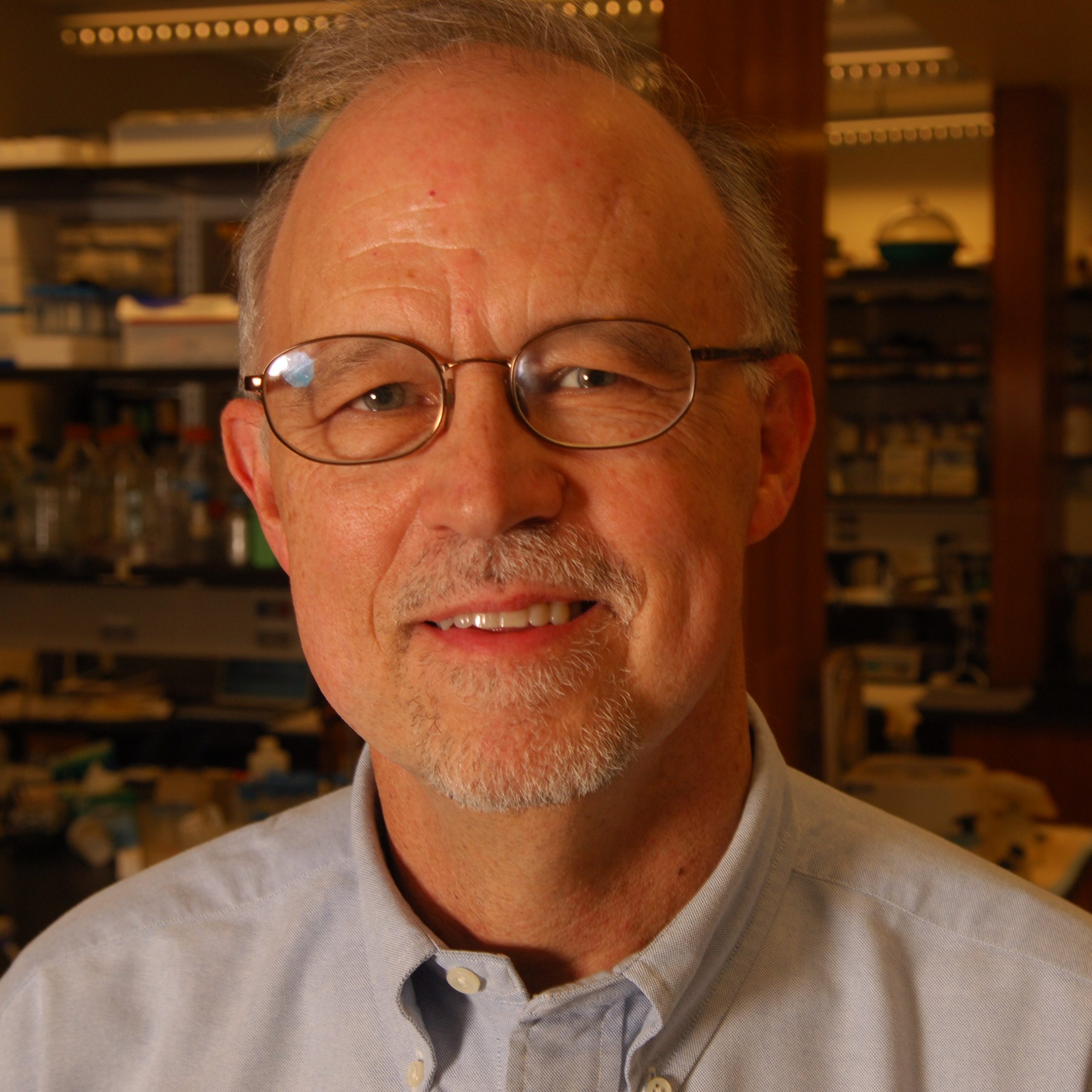
High Molecular Weight Kininogen (HKc) as a Diagnostic Tool for Alzheimer’s Disease
Presenter
Sidney Strickland, PhD
The Rockefeller University
Dr. Sidney Strickland heads The Rockefeller University’s Patricia and John Rosenwald Laboratory of Neurobiology and Genetics, where he and his colleagues study the molecular mechanisms of nerve cell death and regeneration, with a special focus on Alzheimer’s disease. He also serves as dean and vice president for educational affairs at The Rockefeller University.
Dr. Strickland first came to Rockefeller University in 1973, after earning a B.S. from Rhodes College, in Memphis, and a PhD in biochemistry from the University of Michigan. In 1983, he left to join the faculty of the State University of New York at Stony Brook. He returned to Rockefeller in 2000.
Today, in addition to conducting research, Dr. Strickland coordinates the University’s educational activities, including the David Rockefeller Graduate Program, the postdoctoral program, and a range of outreach initiatives involving high school students, undergraduates, and primary- and secondary-school teachers.
Dr. Strickland has received numerous prizes for his work including a John Simon Guggenheim Fellowship; the International Society for Fibrinolysis and Proteolysis Prize; an Innovative Research Award from the Alzheimer’s Drug Discovery Foundation & Elan Pharmaceuticals; and a Zenith award from the Alzheimer’s Association. He received an honorary doctor of science degree in 2006 from his alma mater, Rhodes College.
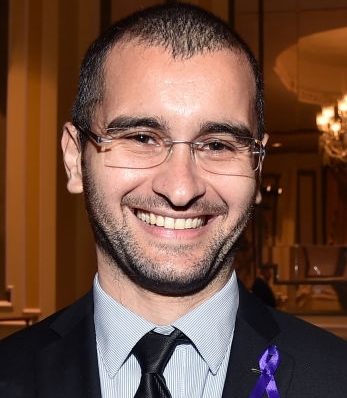
Session IV: NEUROPROTECTION, SYNAPTIC HEALTH AND NEUROTRANSMITTERS
CHAIR
Alessio Travaglia, PhD
Alzheimer’s Drug Discovery Foundation
Dr. Alessio Travaglia is a member of the ADDF’s Scientific Affairs team. He supports the scientific portfolio through strategic review of funding proposal and program management.
Dr. Travaglia completed his postdoctoral training at New York University, where he studied mechanisms underlying memory formation during infancy. He earned a doctorate in nano science at the University of Catania (Italy), where he worked on synthesis and characterization of new potential drugs for Alzheimer’s disease. Dr. Travaglia has authored numerous peer-reviewed publications, including articles in Nature Neuroscience and Journal of Neuroscience.

Development of Novel Anti-Neuroinflammatory Small Molecule Drug Candidates
Presenter
Linda Van Eldik, PhD
University of Kentucky
Dr. Linda Jo Van Eldik is Director of the Sanders-Brown Center on Aging, Co-Director of the Kentucky Neuroscience Institute, and Professor of Neuroscience at the University of Kentucky. She is also Director of the University of Kentucky Alzheimer’s Disease Research Center, an NIH-funded center established in 1985 and internationally recognized for its contributions to the fight against brain diseases that are associated with aging. Dr. Van Eldik has an active research program focused on brain inflammation, and she is investigating why neurodegenerative disorders exhibit overactive and chronic neuroinflammation that can lead to disruption of normal communication among brain cells and cause nerve cell damage. Her research is identifying potential points of intervention, with a goal of developing new drugs to slow the progression of cognitive impairment and neurodegeneration. Most recently, her collaborative “bench-to-bedside” studies have resulted in the discovery of new classes of small molecule drug candidates, and translation to human phase 1 clinical trials.
Dr. Van Eldik received her PhD in Microbiology and Immunology from Duke University, and did postdoctoral research in Virology and Cell Biology at Rockefeller University. She joined the faculty at Vanderbilt University Medical Center in 1981, where she rose to the rank of Professor of Pharmacology and Cell Biology. From 1994 – 2010, she was Professor of Cell and Molecular Biology, Co-Director of the University Center for Drug Discovery and Chemical Biology, and Associate Director of the Alzheimer’s Disease Center at Northwestern University in Chicago.

Current State for Blood Biomarkers in AD
KEYNOTE PRESENTER
Henrik Zetterberg, MD, PhD
University of Gothenburg
Dr. Henrik Zetterberg is a Professor of Neurochemistry at the University of Gothenburg, Sweden, and University College London, UK, and a Clinical Chemist at Sahlgrenska University Hospital in Gothenburg. He is Head of the Department of Psychiatry and Neurochemistry at the University of Gothenburg and leads the UK DRI Fluid Biomarker Laboratory at UCL.
Dr. Zetterberg’s main research focus and clinical interest are fluid biomarkers for central nervous system diseases, Alzheimer’s disease in particular. He has published more than 1200 papers and has received numerous awards.

APOE4 Leads to Breakdown in the Blood-brain Barrier Predicting Cognitive Decline
Presenter
Berislav Zlokovic, MD, PhD
University of Southern California
Dr. Berislav Zlokovic is the director of the Zilkha Neurogenetic Institute and Professor and Chair of the Department of Physiology & Neuroscience at the Keck School of Medicine of USC, and a Professor of Biological Sciences at the Dornsife College of Letters, Arts and Sciences.
Dr. Zlokovic studies the role of brain microcirculation, particularly the blood-brain barrier (BBB) in health and disease in the adult brain and during brain aging. He made major contributions to our understanding of the role of BBB in the pathogenesis and treatment of Alzheimer’s disease (AD) and stroke. Using animal models and studying human brain, his laboratory has shown that dysfunction in the BBB and brain microcirculation can accumulate before neuronal loss, and is an early biomarker of human cognitive dysfunction. His group showed that disrupted cross-talk between BBB-associated pericytes and brain capillary endothelial cells, and astrocytes and pericytes, within the neurovascular unit leads to neuronal dysfunction in both sysnapses and neurons, and that targeting these BBB pathways can reverse neurodegenerative process. He has identified genes and receptors at the BBB that regulate brain levels of Alzheimer’s amyloid-beta toxin, which accumulates with aging and dementia. More recently, his team has developed new imaging techniques for studying neurovascular functions in animal models and the living human brain. These findings contributed to development of Phase 2/3 clinical trials for AD patients. He co-discovered with J.H. Griffin vasculoprotective, neuroprotective, and anti-inflammatory activities of activated protein C (APC) in the CNS, including the receptor requirements and downstream signaling pathways. These findings have been translated in successfully completed Phase 2 trial of 3K3A-APC, a 2nd generation cytoprotective-selective APC analog, in ischemic stroke patients, which led to a Phase 3 efficacy and safety pivotal trial of 3K3A-APC in patients with ischemic stroke.
Dr. Zlokovic is recognized internationally as a leader in the fields of AD and stroke research. Thomson Reuters and Clarivate Analytics listed Zlokovic as one of “The World’s Most Influential Scientific Minds” for 17 consecutive years (2002-2019) for ranking in 1 % of the most-cited authors in the field of neurosciences and behavioral sciences. He received MetLife Award for Medical Research for “significant contributions to our understanding of Alzheimer’s disease and for bringing us closer to a cure”, Potamkin Prize from the American Academy of Neurology ” in recognition of outstanding achievements in research on Alzheimer’s and related neurodegenerative diseases”, Javits Award from NINDS “in recognition of distinguished record of substantial contributions in a field of neurological sciences”, and MERIT Award from NIA “in recognition of sustained contribution to aging and leadership and commitment to the field”. He is a fellow of the AAAS, The European Academy of Sciences, and The Dana Alliance for Brain Initiative. In 2017, 2018, 2019 and 2020, he was asked by the Nobel Assembly at Karolinska Institutet, The Nobel Committee to nominate candidates for the Nobel Prize in Physiology and Medicine. He is also an active entrepreneur and inventor. He co-founded ZZ Biotech, a biotechnology company that is developing treatments for stroke and neurological disorders.
